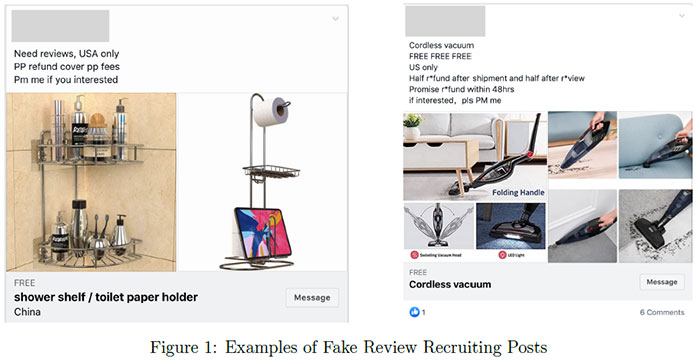One of the attractions of buying products on Amazon as opposed to some other places is the excellent depth of reviews that previous purchasers have left on all but the newest or most obscure items. Or so you might have thought… A recent investigation by the FT found that activity of 9 of the top 10 UK product feedback contributors was "suspicious". Further investigations by the paper have lead to three of these top ten reviewers in the UK deleting their review history.
The FT report says that a prolific reviewer by the name of Justin Fryer reviewed £15,000 worth of good during August. Fryer reviewed a wide range of products from smartphones to electric scooters to gym equipment, it is reported. He output five star reviews at an average rate of one every four hours last month.

Interestingly Fryer appeared to list a quantity of corresponding goods on eBay, marked as 'unused' and 'unopened'. Of course this doesn't get Fryer the full ticket price back but the FT says that he has made nearly £20,000 for such eBay sales since June. Mr Fryer doesn't look like he is alone in this kind of Amazon reviewing and eBay selling activity, as mentioned in the intro, there is a lot of similar suspicious activity going on and the FT's enquiries spooked three top ten UK reviewers enough for them to give up on their profits, for now.
So, what is the 'racket' here? Amazon's community guidelines explicitly prohibit "creating, modifying, or posting content in exchange for compensation of any kind (including free or discounted products) or on behalf of anyone else," as these aren't private blog or YouTuber posts. However, the FT reckons that the process of making money from these so called reviews on Amazon is approximately as follows:
- Chatbots on social networks like Facebook, and messaging apps, are used to find reviewers
- Those interested can pick products from a wide selection, usually from lesser known Chinese brands
- The person will then order a specific agreed product and upload a proof of purchase and verified Amazon UK five star review to the chatbot
- The reviewer then gets a refund for their purchase, and sometimes a bonus, usually via PayPal
- Reviewers can later return the product for refund or sell off the product some other way to pocket more cash

In the wake of the FT's expose, Amazon UK stated that it will investigate the issues brought to light. For its part Amazon insists that it uses AI to spot bad actors, as well as monitoring reports from users. It asserts that authentic reviews are important for its business and that it will suspend, ban, or even and sue users who violate its policies. Meanwhile, online review analysis group Fakespot recently estimated that over half of new Amazon UK reviews are 'fake'. Overall it says that about a fifth of Amazon reviews are 'unreliable', so it looks like the activity as outlined above has grown in recent months.
Consumer group Which? has been campaigning heavily for better checks on the authenticity of online reviews as shoppers should be able to trust such information, especially on sites of big and well known retailers. Outside of the UK's problem, The Economist has recently looked at 'the murky world of fake Amazon reviews' in the USA, based upon this research paper (see Figure 1 below).














